Fiesco by Friedrich Schiller (most recommended books .txt) 📖

- Author: Friedrich Schiller
Book online «Fiesco by Friedrich Schiller (most recommended books .txt) 📖». Author Friedrich Schiller
MOOR. Hem! (Going.).
FIESCO. Stop, stop! Here's work for thee in plenty.
MOOR. Command me. I am ready to act the setter or the bloodhound.
FIESCO. I only want at present the voice of the decoy-bird. To-morrow early two thousand men will enter the city in disguise to engage in my service. Distribute thy assistants at the gates, and let them keep a watchful eye upon the strangers that arrive. Some will be dressed like pilgrims on their journey to Loretto, others like mendicant friars, or Savoyards, or actors; some as peddlers and musicians; but the most as disbanded soldiers coming to seek a livelihood in Genoa. Let every one be asked where he takes up his lodging. If he answer at the Golden Snake, let him be treated as a friend and shown my habitation. But remember, sirrah, I rely upon thy prudence.
MOOR. Sir, as securely as upon my knavery. If a single head escape me, pluck out my eyes and shoot at sparrows with them. (Going.)
FIESCO. Stop! I've another piece of business for thee. The arrival of the galleys will excite suspicion in the city. If any one inquire of thee about them, say thou hast heard it rumored that thy master intends to cruise against the Turks. Dost thou understand me?
MOOR. Yes, yes - the beards of the Mussulmen at the masthead, but the devil for a steersman. (Going.)
FIESCO. Gently - one more precaution. Gianettino has new reasons to hate me and lay snares against my life. Go - sound the fellows of thy trade; see if thou canst not smell out some plot on foot against me. Visit the brothels - Doria often frequents them. The secrets of the cabinet are sometimes lodged within the folds of a petticoat. Promise these ladies golden customers. Promise them thy master. Let nothing be too sacred to be used in gaining the desired information.
MOOR. Ha! luckily I am acquainted with one Diana Buononi, whom I have served above a year as procurer. The other day I saw the Signor Lomellino coming out of her house.
FIESCO. That suits my purpose well. This very Lomellino is the key to all Doria's follies. To-morrow thou shalt go thither. Perhaps he is to-night the Endymion of this chaste Diana.
MOOR. One more question, my lord. Suppose the people ask me - and that they will, I'll pawn my soul upon it - suppose they ask, "What does Fiesco think of Genoa?" Would you still wear the mask? - or - how shall I answer them?
FIESCO. Answer? Hum! The fruit is ripe. The pains of labor announce the approaching birth. Answer that Genoa lies upon the block, and that thy master's name is - John Louis Fiesco - -
MOOR (with an air of satisfaction). That, by my rogue's honor, shall be done to your heart's content. Now be wide awake, friend Hassan! First to a tavern! My feet have work enough cut out for them. I must coax my stomach to intercede with my legs. (Hastening away - returns.) Oh, apropos! My chattering made me almost forget one circumstance. You wished to know what passed between Calcagno and your wife. A refusal, sir - that's all.
[Runs off.
SCENE XVI.
FIESCO alone.
FIESCO. I pity thee, Calcagno. Didst thou think I should, upon so delicate a point, have been thus careless had I not relied in perfect security on my wife's virtue and my own deserts? Yet I welcome this passion. Thou art a good soldier. It shall procure me thy arm for the destruction of Doria. (Walking up and down.) Now, Doria, to the scene of action! All the machines are ready for the grand attempt - the instruments are tuned for the terrific concert. Naught is wanting but to throw off the mask, and show Fiesco to the patriots of Genoa. (Some persons are heard approaching.) Ha! Visitors! Who can be coming to disturb me?
SCENE XVII.
FIESCO, VERRINA, ROMANO, with a picture; SACCO, BOURGOGNINO,
CALCAGNO.
FIESCO (receiving them with great affability). Welcome, my worthy friends! What important business brings you all hither? Are you, too, come, my dear brother, Verrina? I should almost have forgotten you, had you not oftener been present to my thoughts than to my sight. I think I have not seen you since my last entertainment.
VERRINA. Do not count the hours, Fiesco! Heavy burdens have in that interval weighed down my aged head. But enough of this - -
FIESCO. Not enough to satisfy the anxiety of friendship. You must inform me farther when we are alone. (Addressing BOURGOGNINO.) Welcome, brave youth! Our acquaintance is yet green; but my affection for thee is already ripe. Has your esteem for me improved?
BOURGOGNINO. 'Tis on the increase.
FIESCO. Verrina, it is reported that this brave young man is to be your son-in-law. Receive my warmest approbation of your choice. I have conversed with him but once; and yet I should be proud to call him my relation.
VERRINA. That judgment makes me of my daughter vain.
FIESCO (to the others). Sacco, Calcagno - all unfrequent visitors - I should fear the absence of Genoa's noblest ornaments were a proof that I had been deficient in hospitality. And here I greet a fifth guest, unknown to me, indeed, but sufficiently recommended by this worthy circle.
ROMANO. He, my lord, is simply a painter, by name Julio Romano, who lives by theft and counterfeit of Nature's charms. His pencil is his only escutcheon; and he now comes hither (bowing profoundly) to seek the manly outlines of a Brutus.
FIESCO. Give me your hand, Romano! I love the mistress of your soul with a holy fire. Art is the right hand of Nature. The latter only gave us being, but 'twas the former made us men. What are the subjects of your labor?
ROMANO. Scenes from the heroic ages of antiquity. At Florence is my dying Hercules, at Venice my Cleopatra, the raging Ajax at Rome, where, in the Vatican, the heroes of former times rise again to light.
FIESCO. And what just now employs you?
ROMANO. Alas! my lord, I've thrown away my pencil. The lamp of genius burns quicker than the lamp of life. Beyond a certain moment the flame flickers and dies. This is my last production.
FIESCO (in a lively manner). It could not come more opportune. I feel to-day a more than usual cheerfulness. A sentiment of calm delight pervades my being, and fits it to receive the impression of Nature's beauties. Let us view your picture. I shall feast upon the sight. Come, friends, we will devote ourselves entirely to the artist. Place your picture.
VERRINA (apart to the others). Now, Genoese, observe!
ROMANO (placing the picture). The light must fall upon it thus. Draw up that curtain - let fall the other, - right. (Standing on one side). It is the story of Virginia and Appius Claudius. (A long pause; all contemplate the picture.)
VERRINA (with enthusiasm). Strike, aged father! Dost thou tremble, tyrant? How pale you stand there, Romans! Imitate him, senseless Romans! The sword yet glitters! Imitate me, senseless Genoese! Down with Doria! Down with him! (Striking at the picture.)
FIESCO (to the painter, smiling). Could you desire greater applause? Your art has transformed this old man into a youthful enthusiast.
VERRINA (exhausted). Where am I! What has become of them! They vanished like bubbles. You here, Fiesco! and the tyrant living!
FIESCO. My friend, amidst this admiration you have overlooked the parts most truly beauteous. Does this Roman's head thus strike you? Look there! Observe that damsel - what soft expression! What feminine delicacy! How sweetly touched are those pale lips! How exquisite that dying look! Inimitable! Divine, Romano! And that white, dazzling breast, that heaves with the last pulse of life. Draw more such beauties, Romano, and I will give up Nature to worship thy creative fancy.
BOURGOGNINO. Is it thus, Verrina, your hopes are answered?
VERRINA. Take courage, son! The Almighty has rejected the arm of FIESCO. Upon ours he must rely.
FIESCO (to ROMANO). Well - 'tis your last work, Romano. Your powers are exhausted. Lay down your pencil. Yet, whilst I am admiring the artist, I forget to satiate on the work. I could stand gazing on it, regardless of an earthquake. Take away your picture - the wealth of Genoa would scarcely reach the value of this Virginia. Away with it.
ROMANO. Honor is the artist's noblest reward. I present it to you. (Offers to go away.)
FIESCO. Stay, Romano! (He walks majestically up and down the room, seeming to reflect on something of importance. Sometimes he casts a quick and penetrating glance at the others; at last he takes ROMANO by the hand, and leads him to the picture.) Come near, painter. (With dignified pride.) Proudly stand'st thou there because, upon the dead canvas, thou canst simulate life, and immortalize great deeds with small endeavor. Thou canst dilate with the poet's fire on the empty puppet-show of fancy, without heart and without the nerve of life-inspiring deeds; depose tyrants on canvas, and be thyself a miserable slave! Thou canst liberate Republics with a dash of the pencil, yet not break thy own chains! (In a loud and commanding tone.) Go! Thy work is a mere juggle. Let the semblance give place to reality! (With haughtiness, overturning the picture.) I have done what thou hast only painted. (All struck with astonishment; ROMANO carries away the picture in confusion.)
SCENE XVIII.
The former, except ROMANO.
FIESCO. Did you suppose the lion slept because he ceased to roar? Did your vain thoughts persuade you that none but you could feel the chains of Genoa? That none but you durst break them? Before you knew their weight, Fiesco had already broken them. (He opens an escritoire, takes out a parcel of letters, and throws them on the table.) These bring soldiers from Parma; - these, French money;-these, four galleys from the Pope. What now is wanting to rouse the tyrant in his lair? Tell me, what think you wanting? (All stand silent with astonishment.) Republicans! you waste your time in curses when you should overthrow the tyrant. (All but VERRINA throw themselves at FIESCO'S feet.)
VERRINA. Fiesco, my spirit bends to thine, but my knee cannot. Thy soul is great; but - rise, Genoese! (They rise.)
FIESCO. All Genoa was indignant at the effeminate Fiesco; all Genoa cursed the profligate FIESCO. Genoese! my amours have blinded the cunning despot. My wild excesses served to guard my plans from the danger of an imprudent confidence. Concealed beneath the cloak of luxury the infant plot grew up. Enough - I'm known sufficiently to Genoa in being known to you. I have attained my utmost wish.
BOURGOGNINO (throwing himself indignantly into a chair). Am I, then, nothing?
FIESCO. But let us turn from thought to action. All the engines are prepared - I can storm the city by sea and land. Rome, France, and Parma cover me; the nobles are disaffected; the hearts of the populace are mine; I have lulled to sleep the tyrants; the state is ripe for revolution. We are no longer in the hands of Fortune. Nothing is wanting. Verrina is lost in thought.
BOURGOGNINO. Patience! I have a word to say, which will more quickly rouse him than the trumpet of
 In literature a drama genre deserves your attention. Dramas are usually called plays. Every person is made up of two parts: good and evil. Due to life circumstances, the human reveals one or another side of his nature. In drama we can see the full range of emotions : it can be love, jealousy, hatred, fear, etc. The best drama books are full of dialogue. This type of drama is one of the oldest forms of storytelling and has existed almost since the beginning of humanity. Drama genre - these are events that involve a lot of people. People most often suffer in this genre, because they are selfish. People always think to themselves first, they want have a benefit.
In literature a drama genre deserves your attention. Dramas are usually called plays. Every person is made up of two parts: good and evil. Due to life circumstances, the human reveals one or another side of his nature. In drama we can see the full range of emotions : it can be love, jealousy, hatred, fear, etc. The best drama books are full of dialogue. This type of drama is one of the oldest forms of storytelling and has existed almost since the beginning of humanity. Drama genre - these are events that involve a lot of people. People most often suffer in this genre, because they are selfish. People always think to themselves first, they want have a benefit.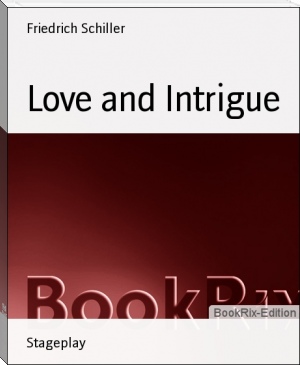
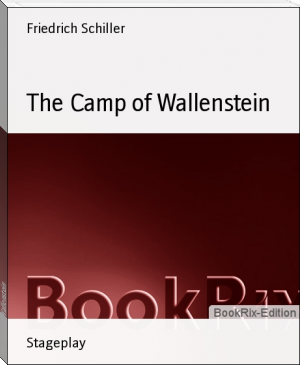
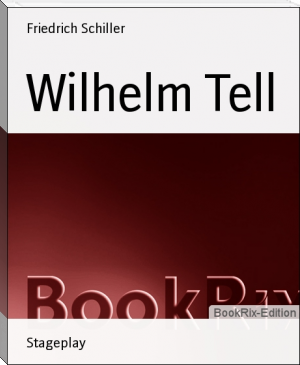
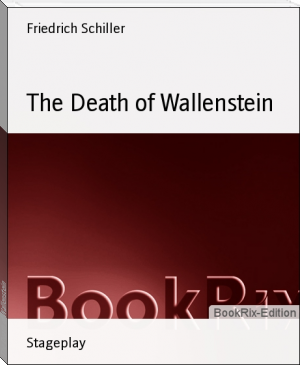
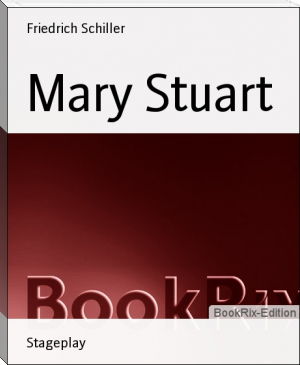
Comments (0)